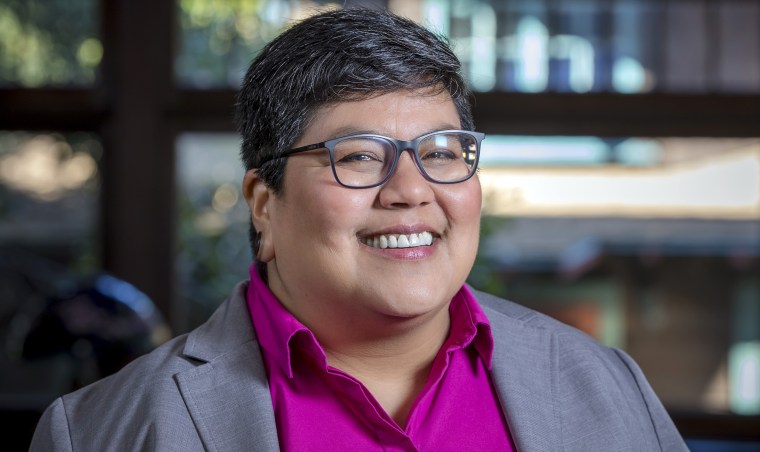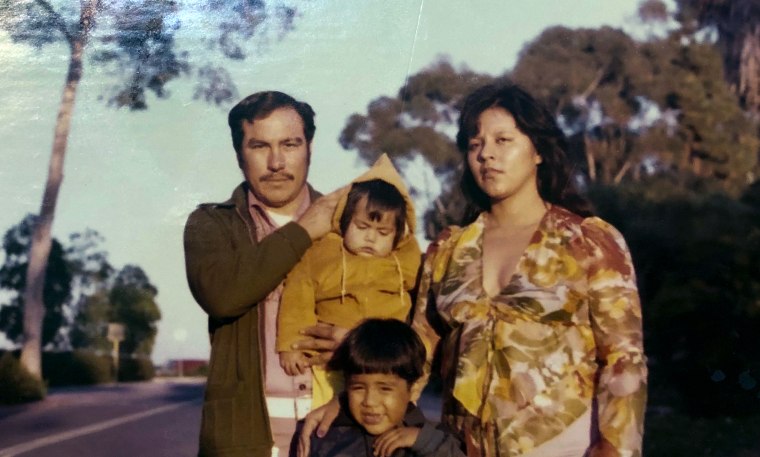Seventy percent of Americans support same-sex marriage, according to the 11th annual American Values Survey, the highest percentage recorded by a major national poll. The results, released Monday, found just 28 percent of respondents oppose the right of gay couples to wed.
Approval crossed the political divide, with majorities of Democrats (80 percent) and independents (76 percent) supporting same-sex marriage, and 50 percent of Republicans, according to the poll conducted by the Public Religion Research Institute (PRRI) in partnership with the Brookings Institution.
Most major religious denominations back marriage equality, too, including white mainline Protestants (79 percent), Hispanic Roman Catholics (78 percent), religious non-Christians (72 percent) Hispanic Protestants (68 percent), white Catholics (67 percent), Black Protestants (57 percent) and other Christian denominations (56 percent).
Religiously unaffiliated Americans were the most supportive, with 90 percent endorsing same-sex marriage.
White evangelicals stood out as the only denomination where a majority opposed same-sex marriage, 63 percent to 34 percent. Support decreased among this group, according to PRRI, which found 41 percent of white evangelicals supported gay marriage in a 2019 survey.
Related
NEWS
Frederick Haynes, senior pastor at Friendship West Baptist Church, a Black megachurch in Dallas, said he’s not surprised by that last number. “White evangelicals have not valued justice and equality,” Haynes told NBC News. “Their definition of Christian is limited to a few ‘red meat’ issues. I mean, for them, racism is not a dealbreaker when it comes to supporting politicians.”
While his church welcomes same-sex couples, Haynes admits some parishioners may be uncomfortable with them on a personal level. But they believe strongly in equality under the law.
“We don’t want to become the monster of intolerance and inequality that we’ve fought for 400 years,” he said. “I think justice and the humanity of all of God’s creations is a supreme value in the African American community, especially in the Christian community. When you marry that with the American value of equality, it becomes a no-brainer.”
PPRI’s poll continues a trend of acceptance that has been growing for more than 30 years: In a University of Chicago poll from 1988, only 11 percent of Americans supported same-sex marriage, with 68 percent opposing it. Proponents outnumbered opponents for the first time in 2009 — 49 percent to 46 percent — according to an ABC News/Washington Post poll.
Those numbers continued to climb, especially after the Supreme Court enshrined the freedom of gay couples to marry nationwide in 2015’s Obergefell v. Hodges ruling. One year later, a May 2016 Gallup poll found 61 percent of Americans supported same-sex marriage, and 37 percent opposed it. This past June, a Gallup poll put support at 67 percent, matching a previous high measured in 2018.
PRRI’s latest results represent a notable increase even from last year’s American Values Survey, when 62 percent of respondents said they supported same-sex marriage.
Related
NBC OUT
“My hunch is if there’s a second Trump administration, the issue of marriage equality won’t be on the table,” said William Galston, a senior fellow at the Brookings Institution.
“I would be surprised if the majority of the Supreme Court viewed it as ‘settled law,’” he told NBC News. However, if the justices made a ruling contradicting the sentiments of 70 percent of the population, he added, “you’re going to have people questioning the legitimacy of the court.”
PPRI polled 2,538 American adults from Sept. 9 to 22 on a wide variety of topics, including Covid-19, climate change, racial inequality and their views of the presidential candidates.
More than 8 in 10 (83 percent) said they supported laws protecting LGBTQ people against discrimination in employment, housing and public accommodations, compared to just 16 percent against such laws.
A majority of Democrats (94 percent), independents (85 percent) and Republicans (68 percent) all supported legal protections for LGBTQ Americans — as did majorities in all religious groups, from 59 percent among white evangelicals to 86 percent of Black Protestants.
Haynes said such broad approval “portends a bright future for the country, as we aim to be a more perfect union.”
Related
NBC OUT
The Equality Act, which would modify existing civil rights legislation to add protections against discrimination on the basis of sexual orientation and gender identity, passed the Democratic-controlled House in 2019 but has not been taken up by the Republican-led Senate.
The Trump administration has largely opposed the Equality Act, however, and took a stand against Bostock v. Clayton County, Georgia, the recent Supreme Court decision that determined that Title VII of the Civil Rights Act of 1964 protected workers from discrimination based on sexual orientation or gender identity.
Haynes said the administration is out of touch with “the vast majority of Americans,” adding that they are instead “plugged into their base — white evangelicals.”
Galston agreed that there’s a “total disconnect” between the public and the White House, which also banned transgender service members from the military and supports allowing child welfare agencies to reject same-sex prospective parents.
‘My guess is the administration figured the people in the Republican coalition who oppose [LGBTQ rights] attach a much higher importance to it than those who favor it,” he said.
Related
NBC OUT
In a campaign season, it’s not unusual to stake everything on mobilizing your base, he added. But after an election, it’s a different matter altogether.
“Support for anti-discrimination laws is now at 83 percent — and that includes a solid majority of white evangelicals,” he said. Looking at the survey, passage of sweeping anti-discrimination laws is inevitable. “Any Republican strategist would see support is a no-brainer. The fact that some loud voices say they oppose it to the bitter end is besides the point,” Galston added. “If there’s a second Trump term, he could go for it [the Equality Act] as a way to take some of the many sharp edges off him.”
LGBTQ rights was one of the few issues respondents seemed to find common ground on. Only 7 percent of Democrats approve of President Donald Trump’s handling of the pandemic, compared to 78 percent of Republicans. And almost 80 percent of Republicans said police killings of African Americans were isolated incidents not indicative of institutional racism, compared to just 17 percent of Democrats.
Eight in 10 Democrats say the GOP has been overrun by racists, while a comparable percentage of Republicans say the Democratic Party has been taken over by socialists.
“As we head into the 2020 election during an unprecedented year of multiple crises,” PRRI founder Robert P. Jones said in a statement, “Republicans and Democrats seem to be living in different countries.”




